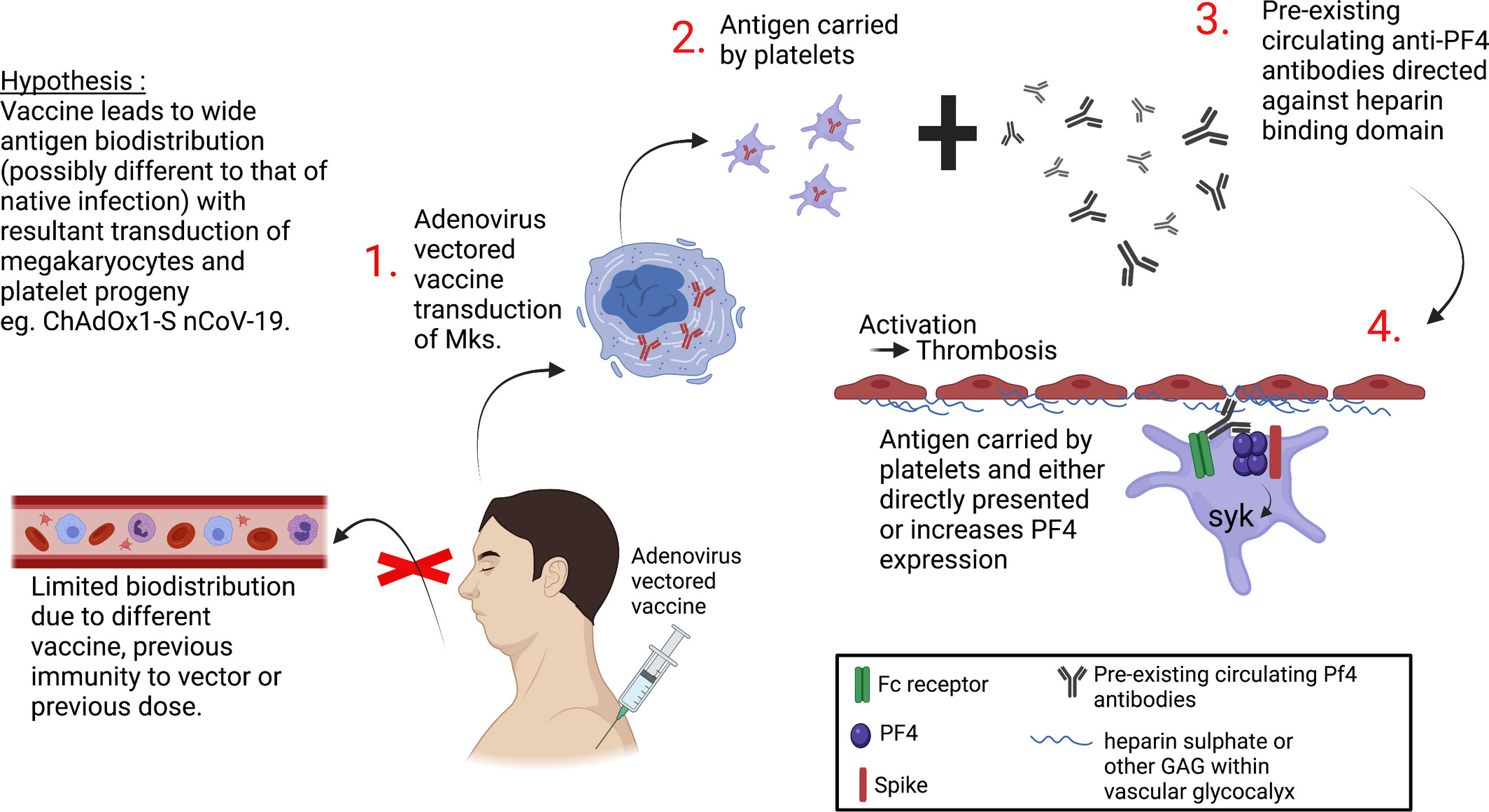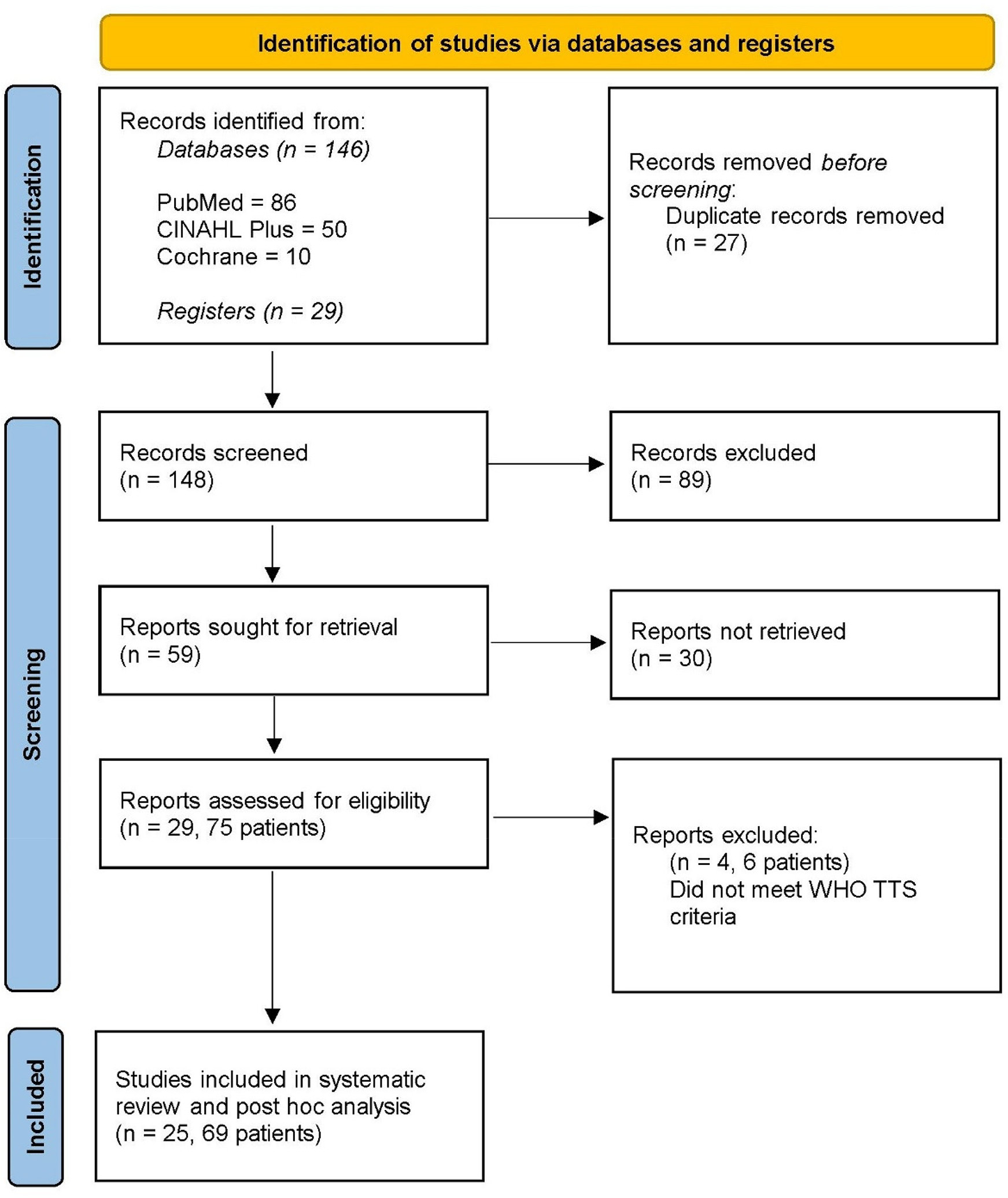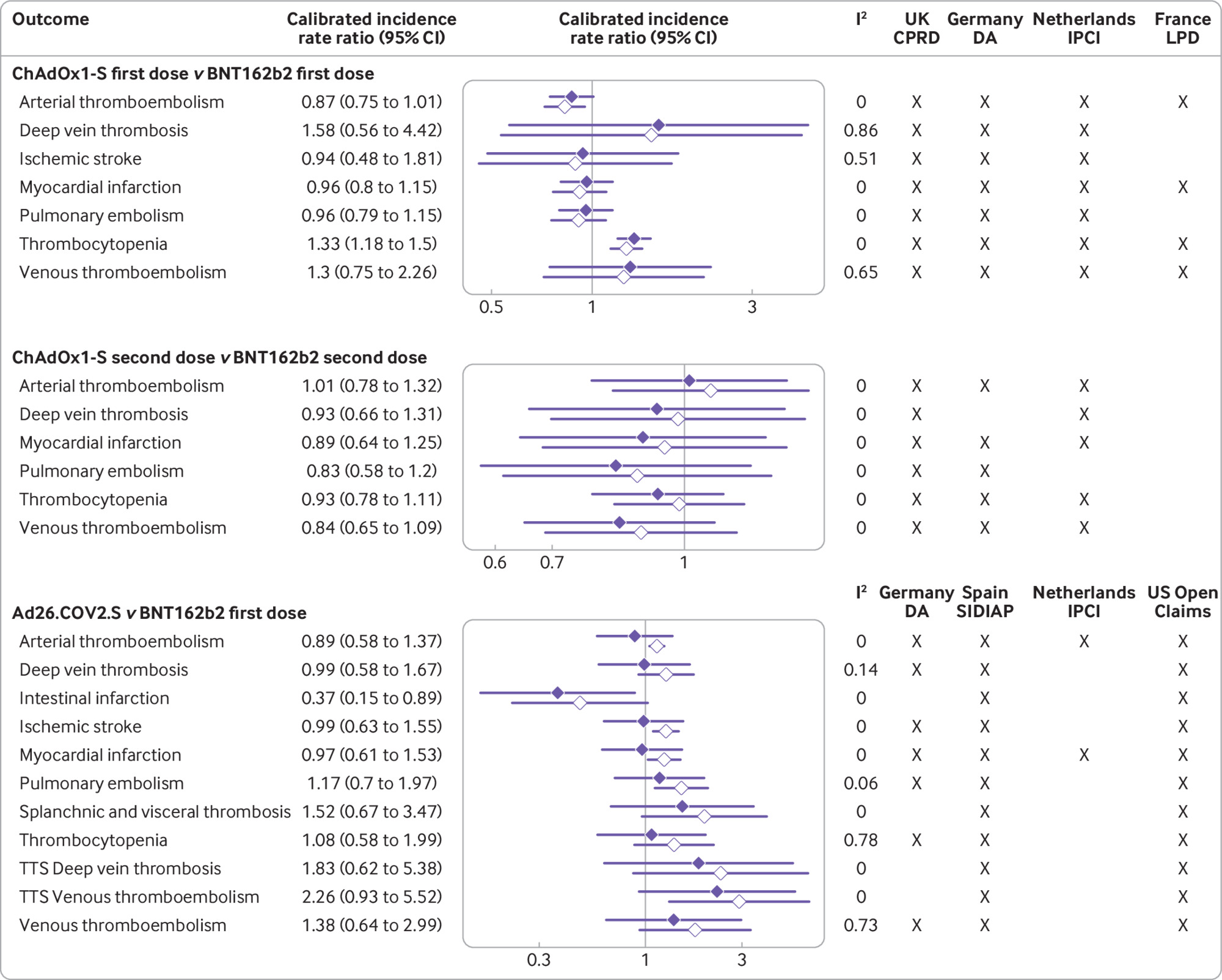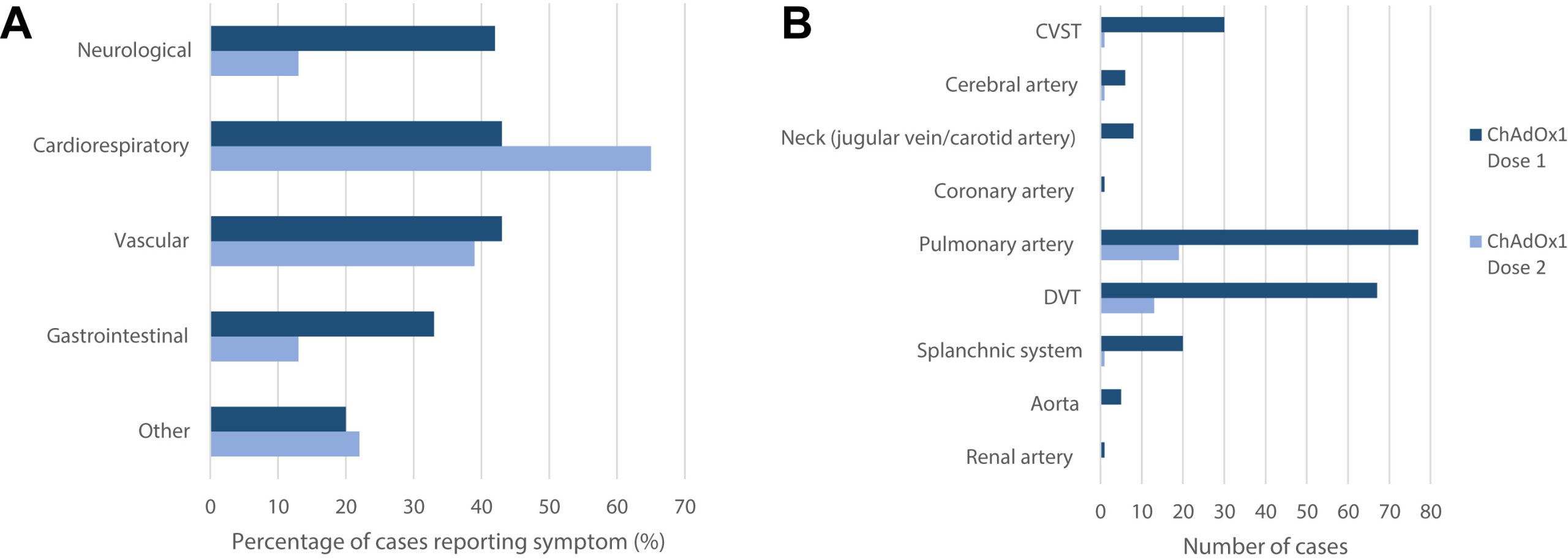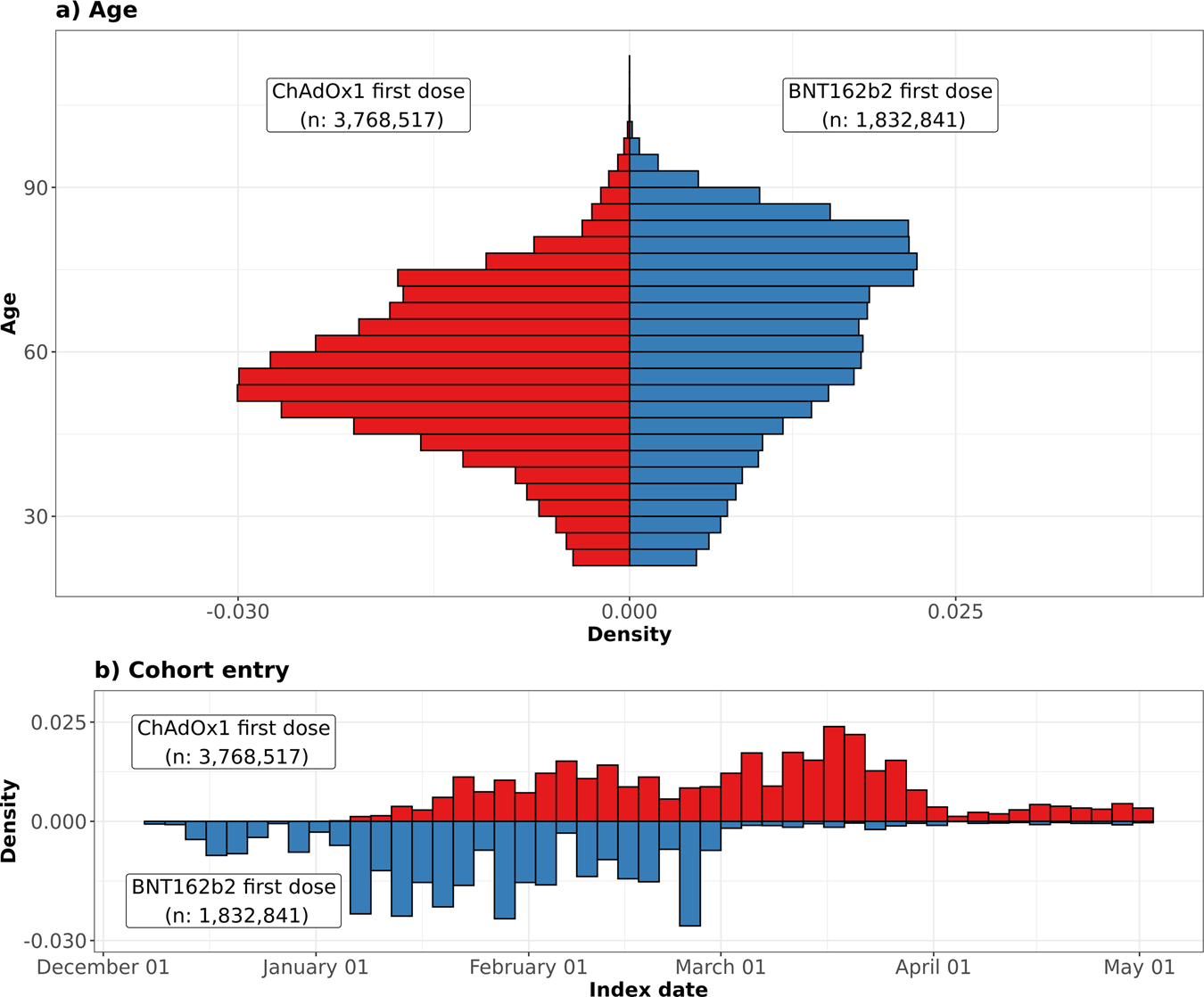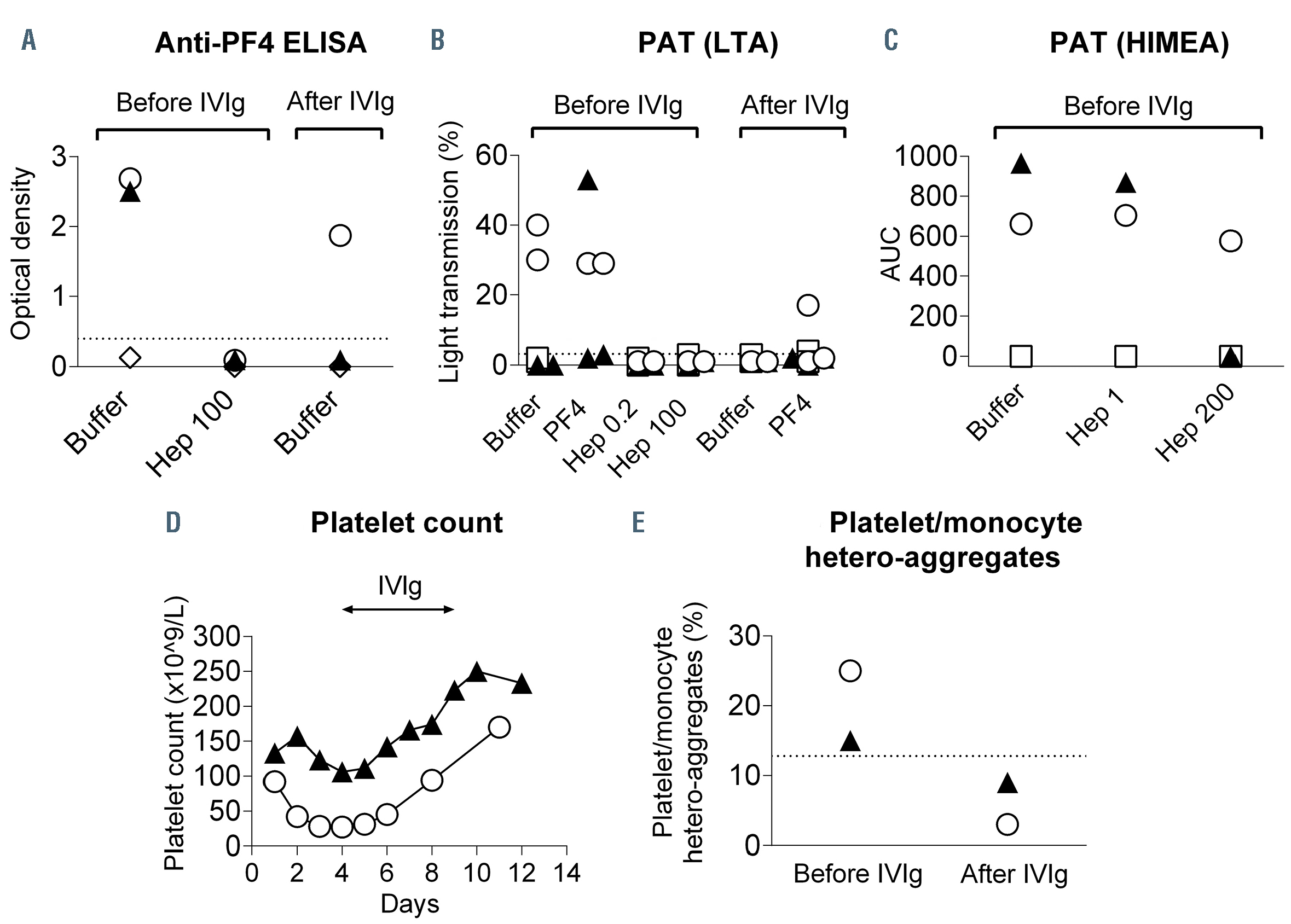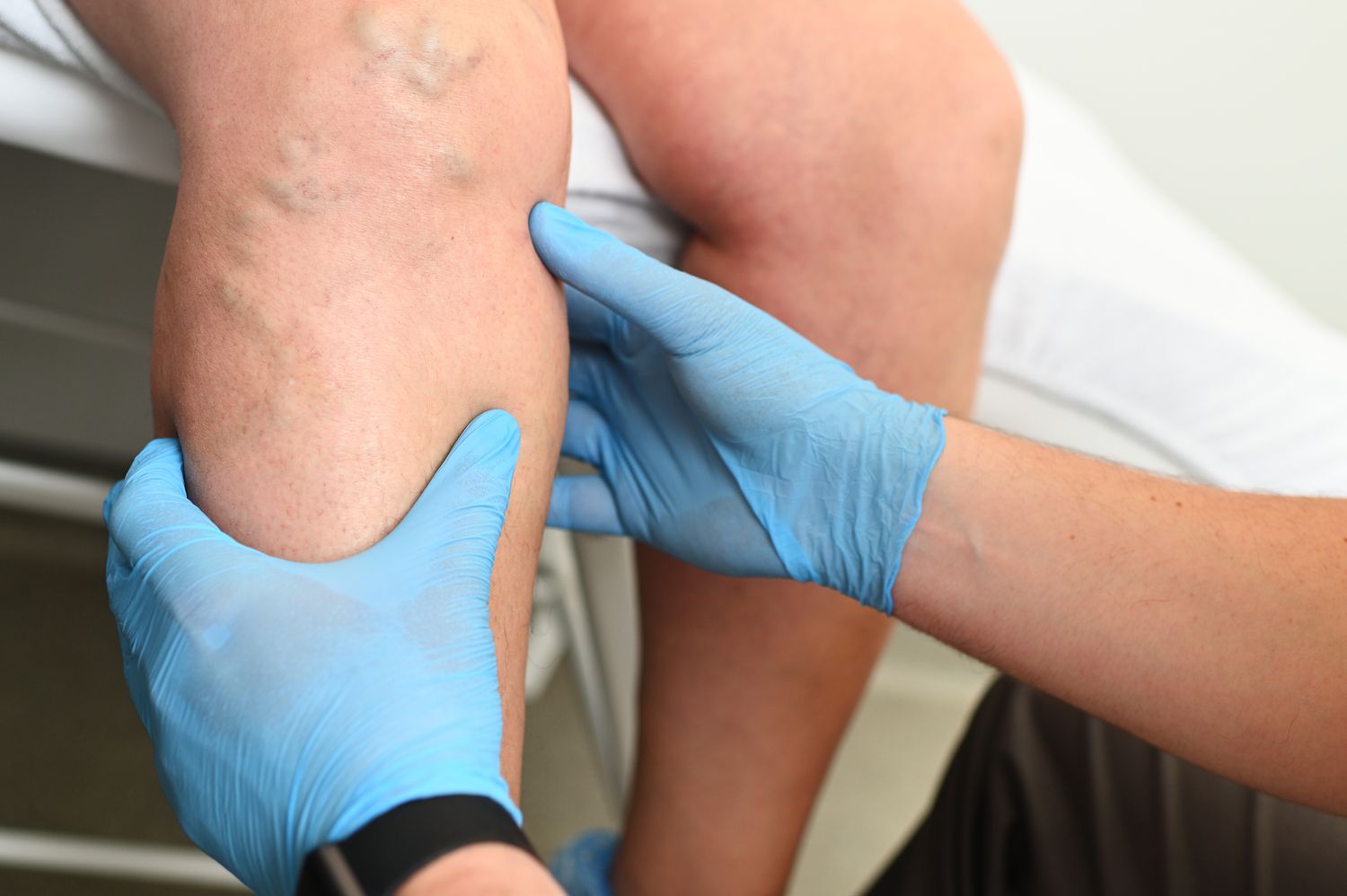
Key facts
- The AstraZeneca COVID-19 vaccine has been linked to a new, very rare blood-clotting condition called thrombosis with thrombocytopenia syndrome (TTS).
- The AstraZeneca vaccine is no longer used in Australia.
- Symptoms of TTS were known to have occurred between 4 and 42 days after vaccination with the AstraZeneca vaccine.
- TTS is diagnosed using blood tests and imaging scans — such as a CT scan.
- Once identified, TTS can be treated effectively in hospital.
What is thrombosis with thrombocytopenia syndrome?
Thrombosis with thrombocytopenia syndrome (TTS) is a very rare, new and specific syndrome. It occurs when a person has blood clots (thrombosis) as well as low platelet counts (thrombocytopenia). It’s also referred to as ‘vaccine-induced immune thrombotic thrombocytopenia’ (VITT).
Thrombosis is the formation of a blood clot, which prevents blood flowing normally through the body.
Thrombocytopenia is a condition where there aren’t enough platelets in the blood. Platelets help the blood to clot (clump), which stops you from bleeding excessively (for example, if you cut yourself).
Because your blood can’t form clots, low platelets can lead to bleeding problems.
Thrombocytopenia can be caused by many things — including medications, cancer, some cancer treatments, pregnancy, infection, an enlarged spleen and in rare cases, an ingredient in tonic water called quinine. Sometimes the cause is not known. There may also be a genetic link.
How is TTS and blood clots linked to the AstraZeneca vaccine?
Thrombosis with thrombocytopenia syndrome is a very rare side effect that was seen in some people after getting the AstraZeneca COVID-19 vaccine. The AstraZeneca COVID-19 vaccine is no longer available in Australia.
The risk of TTS appears to have been higher in people aged under 60 years of age.
The blood clots can occur in different parts of the body, such as the brain (called cerebral venous sinus thrombosis, or CVST) or in the abdomen (idiopathic splanchnic vein thrombosis).
The mechanism that causes TTS is not fully understood, but it is similar to heparin-induced thrombocytopenia (HIT), a rare reaction to a medication called heparin.
TTS is different from general clotting conditions such as deep vein thrombosis (DVT) or pulmonary embolism (PE).
What are the symptoms of thrombosis with thrombocytopenia syndrome?
Symptoms occurred between 4 and 42 days (most commonly 4 to 30 days) after vaccination with the AstraZeneca vaccine.
Symptoms of TSS included:
- severe, persistent headache
- blurred vision
- difficulty speaking
- difficulty breathing
- drowsiness
- seizures or confusion
- chest pain
- swelling in your leg
- persistent abdominal (stomach) pain
- tiny blood spots under the skin, away from the site of injection
Are there any conditions that increased your risk of TTS — such as a history of blood clots?
There are a few rare conditions that potentially increased the risk of TTS. These conditions are:
- cerebral venous sinus thrombosis (a type of blood clot in the brain)
- heparin-induced thrombocytopenia (a reaction to a medication called heparin)
- idiopathic splanchnic thrombosis (a blood clot in abdominal veins)
- antiphospholipid syndrome with thrombosis
TTS is different to these rare conditions. But because there are similarities between TTS and each of these conditions, as a precaution Astra Zenenca was not recommended for people with a history of any of these conditions.
How is thrombosis with thrombocytopenia syndrome diagnosed and treated?
People with TTS are very unwell and need to go to hospital, where they can be treated effectively. If a clot in the brain is suspected — called cerebral venous sinus thrombosis (CVST) — patients will be referred to an emergency department for further investigation. They will be cared for by a medical specialist.
To diagnose TTS, health professionals perform blood tests — including a D-dimer test. If the blood tests show that TTS is suspected or likely, a CT scan may be performed.
Treatment for TTS included using anticoagulant (anti-clotting) medication — other than heparin — intravenous immunoglobulin (an infusion of antibodies into the person’s bloodstream) and prednisolone (a type of steroid).
